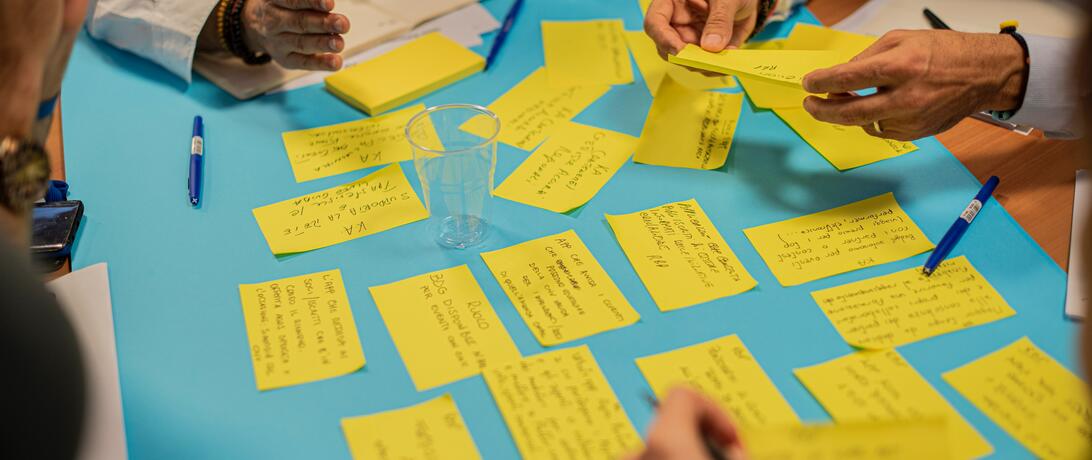
The PeaceCon panel discussion “Connecting Our Evidence: Creating Alignment in Measuring Peace and Conflict” presented several perspectives about how to address the issues invoked by the idea of “evidence-based practice” in peacebuilding.
In principle, most peacebuilders probably believe it’s a good idea for the field to do things that work and avoid things that don’t. In practice, though, that idea invokes several hot topics: it invites questions of power (“Who gets to decide what works?”), it invites questions about what the goals of peacebuilding are (the positive or negative peace), and it invites questions about how we know what works and what doesn’t and whose voices are listened to in answering that question. The PeaceCon panel discussion “Connecting Our Evidence: Creating Alignment in Measuring Peace and Conflict” presented several perspectives about how to address the issues invoked by the idea of “evidence-based practice” in peacebuilding.
One Earth Future’s presentation was given by Senior Strategic Advisor Conor Seyle, and outlined the report, “Some Credible Evidence”, based on the results of an international survey OEF conducted with Alliance for Peacebuilding on the perceptions of the peacebuilding field around the idea of evidence. This survey showed that while evidence was important to almost everyone who took the survey, there was a fair amount of debate about what that meant. These debates may create the impression that the field as a whole doesn’t have a strong shared understanding of what kind of evidence exists or what matters. The survey attempted to determine if the field has a shared understanding of what kind of evidence is needed and where that evidence exists.
Conor’s presentation engaged with the data to argue that there was space for a loose consensus to form: that the majority of participants who took the survey would agree with an approach to evidence that required multiple assessments using different methods and incorporating local voices to understand something as being evidence-based. Dr. Seyle also encouraged participants to pursue publishing evidence despite uncertainties.
“In the modern philanthropic era, where donors are paying attention to evidence and want to see evidence of learning, institutions will be rewarded for demonstrating that they are learning.”
While debates about the processes and metrics abound, there is good evidence describing what sustainable peace looks like, and what conditions peacebuilding interventions need to deliver. By seeking consensus, peacebuilders can begin to build upon agreement to further expand how evidence-based practice is utilized.
Other panelists included key voices from Search for Common Ground, Everyday Peace Indicators, Humanity United, and The Armed Conflict Location & Event Data Project, discussing different approaches to thinking about the question of how to define and measure peace and peacebuilding.
As a part of the evidence-focused peacebuilding community, OEF’s model for impact is based on iterative work improving impact over time through careful attention to evidence and learning. Through events like this panel, OEF tries to integrate our learning with the discussion in the larger field - both to improve our impact through learning from others and to share what we’ve learned to help the field as a whole advance.
Article Details
Published
Topic
Program
Content Type
News